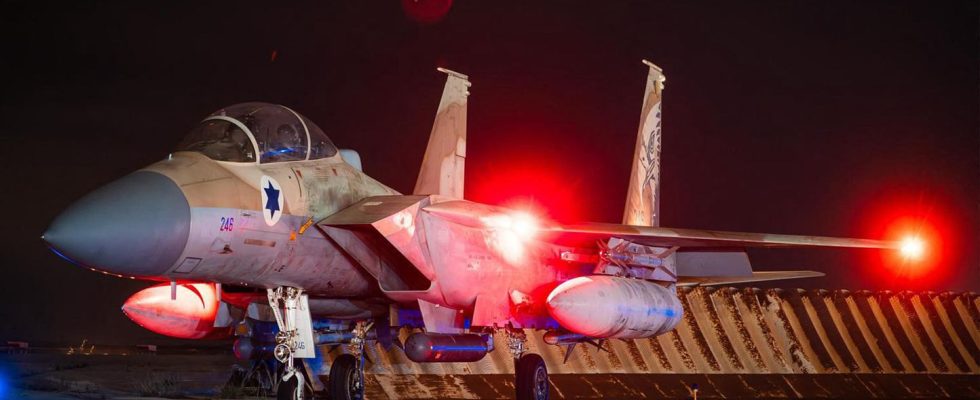The scenario had been feared almost since the Hamas attack on October 7. In response to an Israeli strike on an annex of its consulate in Syria on April 1, Iran attacked Israel during the night from Saturday to Sunday. An attack that did little or no damage, an attack without follow-up, but an attack all the same. “An unprecedented step in an increasingly deep and increasingly direct regional war,” said Julien Barnes-Dacey, director of the Middle East and North Africa program at the European Council on Foreign Relations.
Iran “launched a swarm of 200 killer drones, ballistic missiles and cruise missiles”, of which “the vast majority” were intercepted, the Israeli army said overnight. Most of these drones were also intercepted before reaching Israeli territory, above Syria or Jordan. The Iranian Foreign Minister said he had warned the White House of a “minimal, limited” operation approximately “72 hours before the operation” on Sunday afternoon.
Inevitable response
Between this widespread anticipation and the relative “weakness” of the attack, the incident could have stayed there, with Western condemnations to boot. But if most of the Iranian drones were intercepted last night, a military base was hit, and a 7-year-old girl of Bedouin origin was placed in intensive care, according to the spokesperson for the Israeli army. It is therefore impossible for Tel Aviv to remain without responding. Tehran indicated that “the matter can be considered closed” and considers itself “avenged”, calling on Israel not to put another piece back in the machine.
“It’s easy,” said Alona Fisher-Kamm, Israel’s ambassador to France, who drew a parallel with the attack of October 7 on BFMTV. On the same platform, Professor at Sciences Po Frédéric Encel, specialist in the Middle East, mentioned two possible reactions: an “attack on Iranian soil” or “against its Hezbollah allies”.
Option chosen by Israel, which bombed a pro-Iranian party building in eastern Lebanon this Sunday afternoon. A direct conflict with Iran could, moreover, only be carried out by bombing and intermediary aviation, given that it is necessary to span at least Syria or Jordan and Iraq.
It is therefore difficult to imagine a large-scale response in the immediate future. But “the nature of the attacks may reinforce the Israeli feeling that Tehran is in retreat, that it has neither the will nor the capacity to engage further”, and that it is time to deal a major blow to ‘Iran, analysis for 20 minutes Julien Barnes-Dacey.
Israel gained allies
And the Jewish state is not the only one involved. The United States indicated that it had helped to shoot down “almost all” of the Iranian drones, and British Prime Minister Rishi Sunak said that the British air force had itself shot down “several” drones. As for France, a military source assures that the army only acted for “self-defense” of its bases in the Middle East.
“Iran’s attacks have also rallied new international support for Israel, including from key Arab states that have criticized the Gaza offensive but nonetheless supported Israel’s military response to the drone attacks.” , adds the Middle East specialist.
“Tehran’s obvious desire to avoid being drawn into a direct conflict does little to strengthen its deterrence posture,” he summarizes. The scale of the coming conflict therefore rests in the hands of Israel, on which the West must “put pressure so that it does not retaliate further”.

